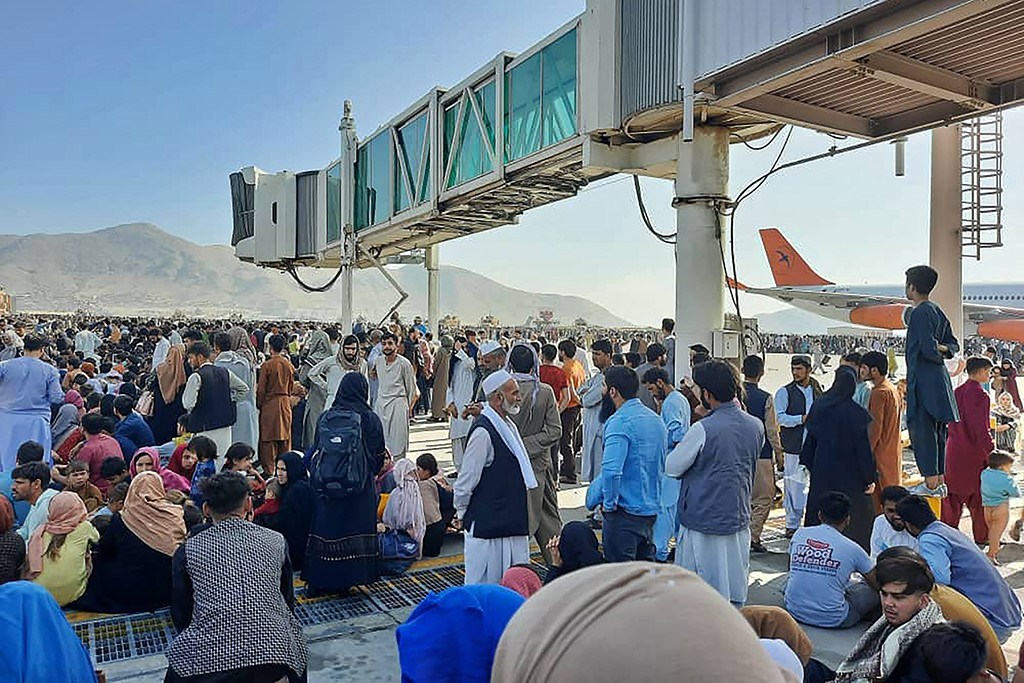The World Health Organisation will be working with donors, partners and health authorities to establish mechanisms for the continuity of international support for the health system in Afghanistan, a senor WHO official said on Friday.
“That support must be designed in manner that sustains and further advances the health gains of the past 20 years,” Dr Rick Brennan, Regional Emergency Director, WHO Eastern Mediterranean Region, said.
“For the past week, the eyes of the world have been on focused on the major air operation at Kabul airport. But once that evacuation mission ends, the enormous humanitarian needs will continue in spite of these challenges. WHO and the UN will be there for the people of Afghanistan.”
The situation in Afghanistan remains volatile and tense and the terror attacks yesterday at Kabul airport have greatly accelerated that tension, he said.
According to the WHO official, Afghanistan represented the 3rd largest humanitarian operation in the world, with over 18 million people in need in the context of conflict, displacement, drought and the COVID-19 pandemic.
While tens of thousands of vulnerable Afghans have been evacuated through the air operation at Kabul airport, millions of vulnerable Afghans will remain.
WHOs first priority remains the safety and security of its staff. Its second main priority is to ensure the continuity of essential health services, especially for the most vulnerable, including women and children, according to Dr Brennan.
WHO has staff in all 34 provinces across the country monitoring the health situation. “The good news is that of around 2,200 health facilities that they are monitoring, 97% remain open and functioning. The more sobering news is that they are rapidly running out of medical supplies and WHO is not currently able to meet their needs.” There are only a few days of supplies left.
“There are multiple security and logistics constraints to bring in more medicines into the country. We hope and expect that we will be able to do so in the coming days, with the support of the Pakistan government. Kabul airport is not an option at present and so we are likely to use Mazar-i-Sharif, with our first flight hopefully going in the next few days.”
WHO is especially concerned about the needs of women and children in Afghanistan. “Already we are hearing that some female health workers are not attending work and that there has been a decline in the attendance of women and children at some facilities.”
Over the past two decades there have been tremendous health gains across Afghanistan, Dr Brennan said.
“While Afghanistan remains a tough place to be a woman or a child, we have to remember that maternal mortality rates have reduced by around 60% and child mortality rates by around 50% over the past two decades. Moreover, thousands of health care workers have been trained, including female health workers – midwives, nurses, doctors and so on. We cannot have a rolling back of those health gains. “
In her press statement after the G7 leaders meeting this week (24 August), European Commission President Ursula von der Leyen distinguished between humanitarian aid and development assistance. As regards the first, there was a broad determination to step up contribution of the aid to help those who are at immediate risk.
“And those are women, girls and children, who make up the vast majority of internally displaced people – 80% of the internally displaced people in Afghanistan are women and girls, and up to now the number runs up to around 3.7 million internally displaced people in Afghanistan,” she said.
EU has also set aside €1 billion in development assistance for the next seven years for Afghanistan. This assistance is frozen until it has received "solid guarantees and credible actions on the ground that the conditions are being met.”
The Brussels Times

